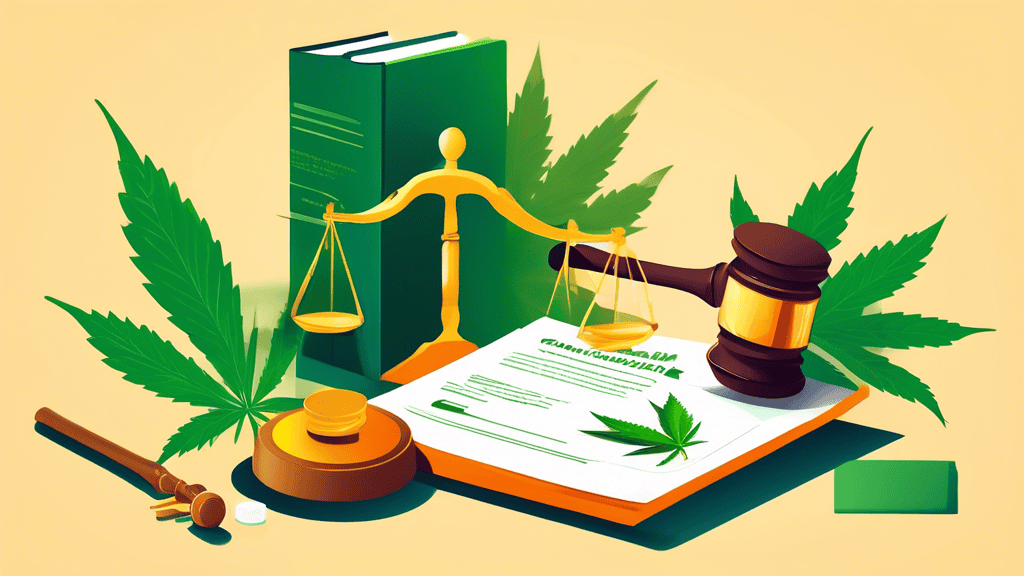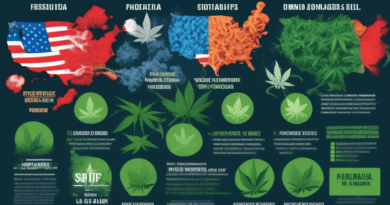Understanding Cannabis Product Liability Laws
The burgeoning cannabis industry presents not only opportunities for growth and innovation but also complex legal challenges. One significant aspect that entrepreneurs and consumers alike need to be aware of is cannabis product liability laws. These laws determine the responsibilities of manufacturers, retailers, and other parties in the supply chain when it comes to the safety and efficacy of cannabis products.
What is Product Liability?
Product liability refers to the legal responsibility that a manufacturer or seller bears for producing or selling a faulty product. This encompasses any defects in design, manufacturing, or marketing that could potentially harm consumers. Product liability laws aim to protect consumers by holding companies accountable for ensuring the safety and reliability of their products.
Types of Product Defects
Cannabis product liability can generally be categorized into three main types of defects:
1. Design Defects
Design defects occur when a product is inherently unsafe due to its design. For instance, a cannabis vape pen that overheats and causes burns could be considered to have a design defect if the hazard is due to its design rather than the manufacturing process.
2. Manufacturing Defects
Manufacturing defects happen during the production process and result in a product that deviates from its intended design. An example could be a batch of cannabis edibles contaminated with harmful substances due to poor manufacturing practices.
3. Marketing Defects
Marketing defects refer to improper labeling, insufficient instructions, or inadequate warnings that fail to inform consumers about potential risks. For example, if a cannabis product does not carry warnings about possible side effects or correct dosage, it could be classified under marketing defects.
Legal Framework Governing Cannabis Product Liability
The legal landscape for cannabis product liability is still evolving, and it varies from state to state due to the federal prohibition of cannabis in the United States. However, several general principles apply:
Federal Regulations
The Federal Food, Drug, and Cosmetic Act (FD&C Act) as well as other federal consumer protection laws may still impact cannabis products, particularly concerning issues related to mislabeling and adulteration. Although cannabis is still classified as a Schedule I controlled substance federally, the FDA has jurisdiction over cannabis-derived products like CBD.
State Regulations
Each state that has legalized cannabis has its own set of regulations and standards for product safety and testing. These regulations often cover aspects such as potency, contaminants, labeling, and packaging. Producers and sellers must comply with these local laws to mitigate liability risks.
Common Law Principles
In addition to statutory laws, common law principles such as negligence, breach of warranty, and strict liability also govern cannabis products. Under strict liability, for example, a plaintiff does not have to prove negligence if the product is found to be defective and injures a consumer.
Defending Against Product Liability Claims
Businesses in the cannabis industry can take several measures to minimize the risk of product liability claims:
- Compliance: Ensure full compliance with all applicable federal, state, and local regulations.
- Quality Control: Implement rigorous quality control measures during production and ensure thorough product testing.
- Insurance: Obtain product liability insurance to provide financial protection in the event of a lawsuit.
- Proper Labeling: Provide accurate labeling, including dosage instructions, potential side effects, and warnings.
- Documentation: Maintain comprehensive documentation of testing, production processes, and compliance efforts.
Conclusion
Understanding cannabis product liability laws is crucial for stakeholders within this rapidly growing industry. By staying informed about legal requirements and proactively managing risks, businesses can safeguard their operations and protect consumers, fostering a safer and more reliable market for cannabis products.




